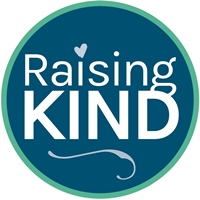
To say that it’s been a long day would be putting it mildly.
The power-struggles have been endless. The whining has been constant. And, of course, there was the “I’m-not-leaving-the-store-without-a-toy” meltdown in aisle nine.
No matter what you do, it seems that your child’s main goal is to make your day miserable.
And it’s working.
You’re frustrated. Upset. Tired.
What’s your next move? Grounding? Timeout? Send him to bed without dinner?
How about connection?
Wait, what?!
Hugging a child who just screamed “You’re the meanest mom ever” at the top of his lungs?
Yep.
Here’s the thing: Melting-down, acting-out children are longing for connection. They feel disconnected from you and don’t have a better way to express what they are thinking or feeling.
Punishing or distancing yourself actually makes this disconnection worse, which means more acting out behavior in the future.
 Why it works
Why it works
When your kids feel connected to you, there is less need to act out. You are in tune with them. They know you are in their corner and on their side. They feel loved and don’t need to beg for more attention, response or emotion.
This is what you want, right?!
Does this mean that you never set limits, enforce rules or have conflict? No.
Part of parenting is setting clear, consistent and fair limits. Part of being in a family means that you will disagree, misunderstand and butt heads.
Connection doesn’t mean “soft,” passive parenting. It means giving your children what they need.
OK, so how do I connect with my child?
Connection looks different for each child, and for each parent. It depends on the day, the time of day and what else is going on around you. It can be scheduled or spontaneous.
Maybe you surprise your kids with a trip to the park, play an impromptu game of tag or simply sit silently together on the couch. Maybe you ask about something specific that happened that day — and actually listen to the response!
Sometimes, connections happen through difficult, challenging situations — making up after an argument, crying together after hearing about what the mean girls said at school, consoling after a last-minute loss in the game.
Flopping down on the floor next to your son you say, “This has been quite a day! I wonder if you could use a hug?”
He’s not a baby anymore, that’s for sure, but he doesn’t refuse — and within minutes, he melts into your lap.
You can almost feel his mood shifting.
Relief rushes over you. Finally!
If you’re looking for more compliance, less arguing or acting out, save the correction for later and try connecting first.
Originally published by Imperfect Families











